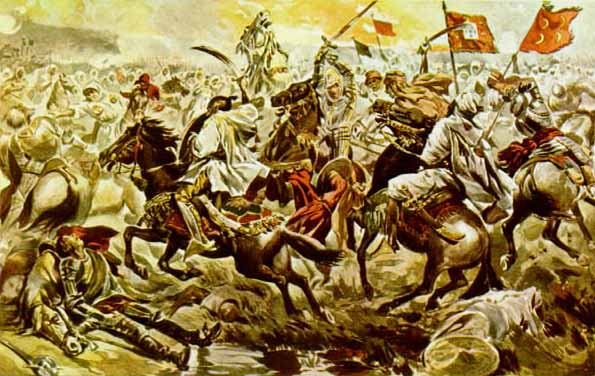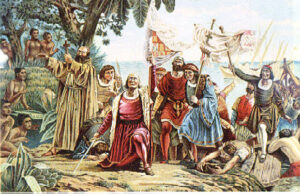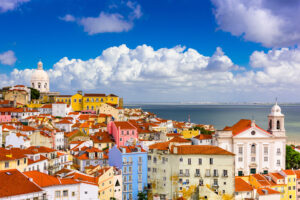The Portuguese Empire was the first and one of the longest-lasting empires in history. It experienced a dramatic rise and fall that had a huge impact on world history. From a leading maritime power to a minor colonial presence, the country’s history is complicated by exploration, economic growth, military conflict, and eventual decline. This study provides a comprehensive account of the important events, people, and things that influenced the course of the Portuguese Empire.
The Coming of the Portuguese Empire
Ocean Exploration and Growth
In the early 15th century, the Portuguese Empire began to develop and grow, with frequent maritime explorations. With the help of Prince Henry the Navigator, Portugal began a series of voyages that would become the foundation of its empire. When Prince Henry opened a navigation school in Sagres, it helped improve navigation and cartography. This made it easier for Portuguese explorers to find new lands and open sea routes.
As a result of the first voyage, trading posts and colonies were established along the coast of Africa. Some of the most important sites are in Ceuta, Tangier and the Azores. Expeditions such as Bartolomeu Dias (who rounded the Cape of Good Hope in 1488) and Vasco da Gama (who successfully reached India in 1498 and opened a direct sea route to Asia). Home aided these efforts. These achievements were important in maintaining Portugal’s position as the greatest maritime power.
Establishment of Overseas Territories
When the Portuguese successfully sailed around the Cape of Good Hope, they were able to expand into the Indian Ocean. Establishing trading posts and colonies in key locations such as Goa in India and Malacca in Southeast Asia gave Portugal control over important trade routes and access to lucrative markets. The Portuguese also established a base in Brazil, which was discovered in 1500 by Pedro Álvares Cabral and later became an important part of the Portuguese empire.
In the Treaty of Tordesillas, signed in 1494, Spain and Portugal divided the newly discovered lands outside Europe. The treaty confirmed Portugal’s landing rights in Africa, Asia, and Brazil, thus strengthening its plans to become an empire. . Empires develop through war to conquer new lands, through negotiations with other countries, and through the formation of strategic alliances.
Economic Growth and Cultural Well-Being
At its height, the Portuguese Empire had a very strong economy. Because the empire controlled important trade routes, it was able to control the spice trade, which made Portugal very prosperous. With an influx of capital from Asia and Africa, Lisbon became an important commercial and cultural center.
Trade brought with it enormous amounts of wealth, which led to a great development of knowledge and culture. During the Portuguese Renaissance, art, literature, and science were all more developed. Luis de Camões wrote an epic poem, “Os Lusíadas”, in which he praised the work of the Portuguese explorers. The empire’s connections to different parts of the world also made it easier for people to share ideas, which benefited the Renaissance movement as a whole.
The End of the Portuguese Monarchy
Loss of Naval Superiority
In the late 17th century, the Portuguese empire began to disintegrate as it faced increasing competition from other European powers. The rise of the Dutch and British maritime empires and the decline of Portuguese naval superiority made it more difficult for Portugal to control its overseas territories.
The Dutch occupied key territories such as the Spice Islands, further weakening Portugal. As a result of economic and military problems, the Portuguese empire struggled to maintain its many colonies and trading posts.
Significance and Role of the Iberian Union
The Iberian League, which began in 1580, was a major turning point in the empire’s decline. After the death of King Sebastian, Portugal and Spain united under King Philip II. The alliance placed Spanish interests under the control of Portuguese interests, diverting resources and attention from Portuguese plans to colonize other countries.
The alliance made it harder to deal with other European powers and created more competition. Because the Portuguese were weaker, the Dutch were able to capture some important trading posts and colonies. The Portuguese lost a lot of territory during this period, making them less powerful worldwide.
The Rise and Fall of Rome
In 1640, Portugal regained its freedom from Spain. This ended the Iberian League. Then, during the Portuguese Restaurant Portuguese Liberal Revolution of 1820 that followed. Brazil was lost because of the movements for independence in South America. This was a big blow to the empire’s economic and strategic interests.
The Last Years and Their Legacy In the years leading up to the end of the Portuguese Empire, its colonies were slowly taken apart. As the 1800s and early 1900s went on, the empire continued to fall apart, losing control of parts of Africa and Asia. In 1974, the Carnation Revolution ended the Estado Novo regime in a peaceful way. This was the end of Portugal’s colonial era.
The cultural, linguistic, and historical links it made around the world are clear signs of the Portuguese Empire’s influence. Countries like Brazil, Mozambique, and Angola speak Portuguese, which is still a well-known language around the world. As the empire grew, people from different cultures met and interacted with each other. These interactions have had a lasting effect on world history.
Conclusion
The rise and fall of the Portuguese Empire show how complicated and changing history is. There was exploration, growth, and then decline. Portugal became a major world power through its empire’s achievements in maritime exploration and global trade. However, its eventual fall was caused by problems within the empire and competition from other countries. These cultural and historical contributions from the Portuguese Empire have changed the world in ways that can still be felt today.



